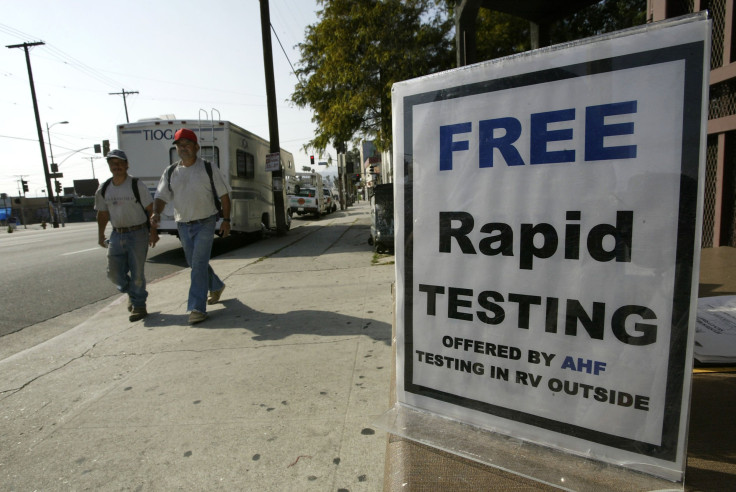Sexually Transmitted Diseases In The US Military: Syphilis Cases See 41% Rise Since 2010

The U.S. Navy in the past month has seen nine new cases of the sexually transmitted disease syphilis in its ranks — just as many diagnoses as giardia, Lyme disease and salmonella combined. The U.S. Military as a whole has seen big increases in syphilis cases in the past five years — a 41 percent bump since 2010, according to the Military Times.
The military recorded 2,976 troops diagnosed with the disease between January 2010 and August 2015, according to a report from the Armed Forces Health Surveillance Center released last month. Male troops made up the vast majority of these syphilis cases at 92 percent.
Of the 2,976 troops diagnosed with syphilis, 727 — or 24.4 percent — were also HIV positive. Authors of the report were concerned about the rise of STD cases in the military; they said it's a serious risk to public health.
Syphilis infection is on the rise among US military personnel. (MSMR Vol.22 No.9 Sept 2015) pic.twitter.com/2zyjKEzTxB
— Ed (@Rx_Ed) October 6, 2015“There have been multiple hypotheses posited for the resurgence of syphilis in the civilian population: Among these are decreases in safer sex practices, increased use of the Internet as a means of meeting sexual partners and the increase of harm reduction strategies such as oral sex, which can decrease the risk of HIV transmission but conversely increase the risk of contracting syphilis,” the authors of the September report wrote.
Many of the syphilis cases were diagnosed in the early stages of the disease, but 244 were diagnosed as advanced. Symptoms of syphilis in the primary and secondary stages include painless sores, fever, sore throat, headache and weight loss, according to the Centers for Disease Control and Prevention. Late-stage symptoms can include difficulty coordinating muscle movement, numbness, dementia and can also invade a person’s internal organs.
Other sexually transmitted diseases remain more prevalent in the military community, however. The most common STDs among military troops are human papillomavirus, chlamydia, herpes and gonorrhea.
© Copyright IBTimes 2025. All rights reserved.




















